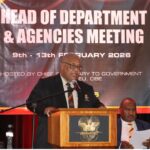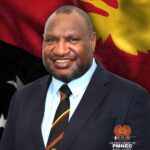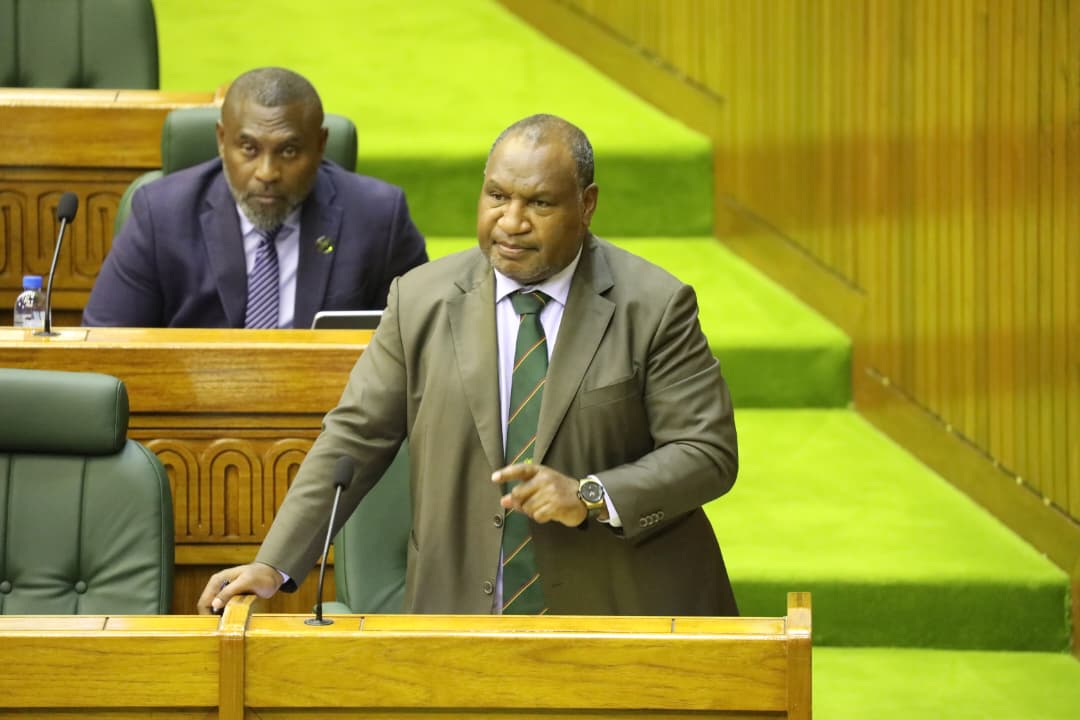Prime Minister Hon. James Marape has today (29.10.25) presented to Parliament the final report on the review of the form and system of government and the election of Prime Minister by the people – the result of a major 2-year consultative process carried out throughout the country auditing the current system of government of Papua New Guinea.
The two-volume report, titled ‘Final Report on the Inquiry into the Form and System of Government in Papua New Guinea: Election of the Prime Minister by the People’, is the work by the Marape-Rosso Government to review the system of government as part of the 50-year reforms going into strengthening the parliamentary, public service, and government processes and mechanisms in the country.
The report is now before Parliament for review and debate, and to see if Parliament can accept it to allow for changes to enabling legislation, including the Organic Law on Provincial and Local-Level Government, and the Constitution.
The report captures seven key recommendations and sub recommendations on fundamental areas of the system of government covering the election of the Prime Minister, the three-tier system of government, the parliamentary system, Head of State, women representation in Parliament, electoral system, and the political party system.
“This is a very comprehensive audit into the system of government we have been using so far as government and as country,” Prime Minister Marape said in Parliament as he tabled the report.
“After 50 years, we must pause and find out whether we are doing the right things to achieve our goals under the national strategies – the Medium-Term Development Plans, the PNG Vision 2050, the National Goals and Directive Principles, and the Constitution.
“However, realisation of these goals can easily be subverted if the attention of elected members, including the Prime Minister, is diverted to other matters such as political manoeuvring to maintain political numbers instead of on important matters of development of our people.
“In such a situation, the power must revert to the people to directly address some of these bottlenecks to ensure State apparatus, such as the Office of the Prime Minister, is accountable and stays focused on mandated business.
“The review is about looking at PNG’s government system – whether it has worked or not, and arrest influences that have bogged down the time and effort of the Prime Minister and Members of Parliament to clear the Prime Minister to be focused only on national interest,” said PM Marape.
The Prime Minister called for a bipartisan treatment of the report and its recommendations, while highlighting that the review was crucial to PNG’s development after 50 years as a nation.
Work into the report came about from an NEC decision taken in 2021, where the PNG Constitutional and Law Reform Commission was directed to look into the Constitution, Organic Law on Provincial and Local-Level Government many Acts of Parliament as part of the review.
The seven Terms of reference (TOR) guiding the review were summarised under four thematic areas:
• System of government: Covering the three-tier system of government in PNG;
• Parliamentary System: Regarding the unicameral and bicameral design of the Legislature;
• Head of State: With reference to the British Monarch under Section 82 of the Constitution;
• Election of the Prime Minister: the way to nominate and elect the Prime Minister to the floor of Parliament.
The review was launched in February 2023 with CLRC touring the country, including Bougainville, in a wide consultation process which gauged views from men, women, youth, churches, and civil society organisations by utilising meetings and seminars, accepting the submission of technical papers from experts, conducting research, touring six countries, and capturing feedback from the public through mainstream and social media.
The recommendations made in the report are:
• To change the current system of government from three-tier system to a two-tier system;
• To change the Head of State from a Constitutional Monarchy to a Non- Executive President;
• People of PNG to directly elect the Prime Minister through the political party with the greatest number of elected MPs endorsed by that party, and the Head of State to sanction the leader of that political party as Prime Minister with a full term of government;
• To improve the electoral system and processes for a modern PNG;
• To create more opportunities for women’s representation in Parliaments through special measures, including reserved seats, nominated seats and quota system;
• To improve political party system; and
• To adopt the bicameral parliamentary system.
“This is a well-researched report that demonstrates the extent CLRC has gone to ensure that every opportunity was given for all to participate and contribute their views in the review.
“As a government we must not be scared of change, however daunting it may be, especially changes that are necessary for our progress and our future prosperity,” he said.






